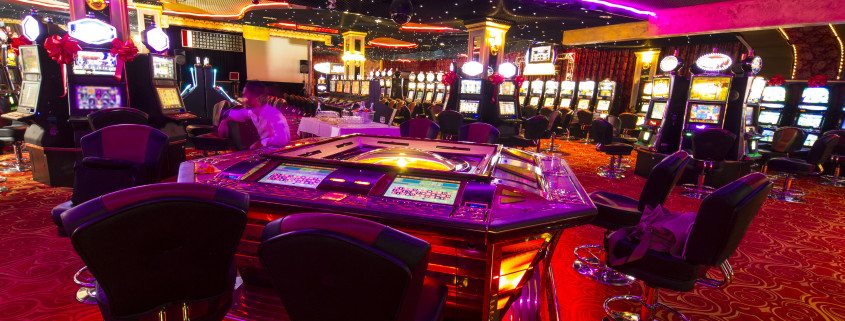Energy Tax Savings for Casinos
A savvy business owner is constantly looking to save money and cut costs in every avenue possible. While most casinos in America generally make a good profit, they are not excluded from economic fluctuations. Casino owners, just like other business owners, still have expenses and need to find ways to reduce them no matter their earnings. Prudent businesspeople make wise decisions and learn to plan for tough times, making choices for the business that will keep it afloat no matter the state of the economy. Reducing expenses in energy costs can help businesses stay prosperous and retain more profit in the long term.
One way that businesses—and especially casinos—can reduce operating costs and keep more of their profit is through §179D of the Energy Policy Act (the EPAct), enacted in 2005. Since most commercial casinos include resorts, they fall under the category of hotels and motels for tax deduction purposes. Under the provisions of §179D, casino and hotel owners can qualify for tax deductions of up to $1.80 per square foot when they implement energy efficiency measures in their businesses.
Casinos are considered the ideal business type to benefit from the §179D tax deductions due to their hotel rooms, expansive gaming floors, conference halls, and large parking garages. These facilities utilize a lot of energy in all three of the categories that can qualify for deductions:
- Lighting
- HVAC
- Building Envelope
Each category allows for a deduction of up to $0.60 per square foot, totaling $1.80 per square foot for the three categories combined. While this may not sound impressive at first, consider the size of most casinos and the amount of energy consumed.
Lighting Deductions for Casinos and Hotels
Much of the energy that casinos use goes toward lighting. On the gaming floor, in the guest hotel rooms, in the restaurants—everything is lit up 24/7. In order to qualify for the §179D deductions, casinos must reduce wattage use by at least 40% in comparison to the 2004 ASHRAE (American Society of Heating, Refrigeration and Air-conditioning Engineers) standards. The full deductions of §179D can be received at a 40% reduction, so any building meeting the ASHRAE standard will automatically qualify for the full tax deduction.
On the gaming floor, the slot machines are the biggest use of energy for casinos. Since these machines are constantly in use, even the energy-efficient light bulbs used in them need to be changed about three times per year. As a result, casino owners have been switching to LED bulbs in recent years. Although these bulbs do cost more up front, they not only last longer but contribute to monthly energy savings as well as saving on maintenance expenses. Allowing the casino to receive the §179D deductions is just another cost savings.
HVAC Systems
Another area of high energy usage for casinos is heating and cooling. With constant guests, casinos need to keep all areas climate controlled at all times. With this climate control comes big energy bills, so casino owners would find it in their favor to implement energy efficiency strategies and receive the tax deductions.
Las Vegas, the most well-known city for casinos, can benefit greatly from an energy-efficient HVAC system. Nevada’s hot, dry climate requires air conditioning for a large part of the year, and casino owners need to make sure that guests are comfortable in order to retain business. With this kind of usage, any casino owner would be wise to implement the most energy-efficient system possible. The initial investment will pay for itself very quickly, and savings will continue for the long run.
Building Envelope
The final category of tax incentives for energy deductions is the building envelope category. The building envelope is the part that separates the interior of the building from the exterior: windows, doors, insulation, sealing, and so on. It is commonly known that air can leak through some of these areas, escaping out or bleeding in through tiny gaps or holes. Creating an air barrier system in the building can save as much as 40% of heating and cooling costs. Implementing this type of system will allow heating and cooling systems to become more efficient as well.
The building envelope can be improved in several ways:
- Sealing and tinting windows
- Sealing doors and skylights
- Upgrading insulation
- Sealing decks, roofs, and exterior cladding
- Installing a green roof
Many casinos are going green and implementing efficient energy measures in order to achieve LEED (Leadership in Energy and Environmental Design) certification. LEED-certified buildings use sustainable resources in all areas and receive points to achieve one of the four levels of LEED ratings. In order to achieve LEED certification, casino owners are required to have a qualified engineer create a model of the energy systems they plan to implement. A model is required to receive the §179D tax deductions as well, and a qualified engineer can help with both.
Money-Saving Incentives for Casinos
Implementing energy efficiency measures in casinos, while costly up front, will prove to be a good long-term investment on many levels. As an example, a casino that is 400,000 square feet and implements sustainable energy measures in all three categories can receive a tax deduction of up to $720,000 per year. This does not even include the additional monthly savings on bills; casinos will save on maintenance, labor, and improvements, which will be minimal with the new systems in place.
Incentives are available for a reason, and in the case of sustainable energy, the incentives and certifications are in place to benefit the environment and the economy as well as the business. Lawmakers are working on writing the §179D tax deductions into permanent law; in the meantime, consider upgrading energy systems in your casino and taking advantage of the benefits available to you as a business owner. Lighting, HVAC, and building envelope upgrades in your casino will help you cut energy expenses long term, achieve better energy ratings, and retain more income for the future.


